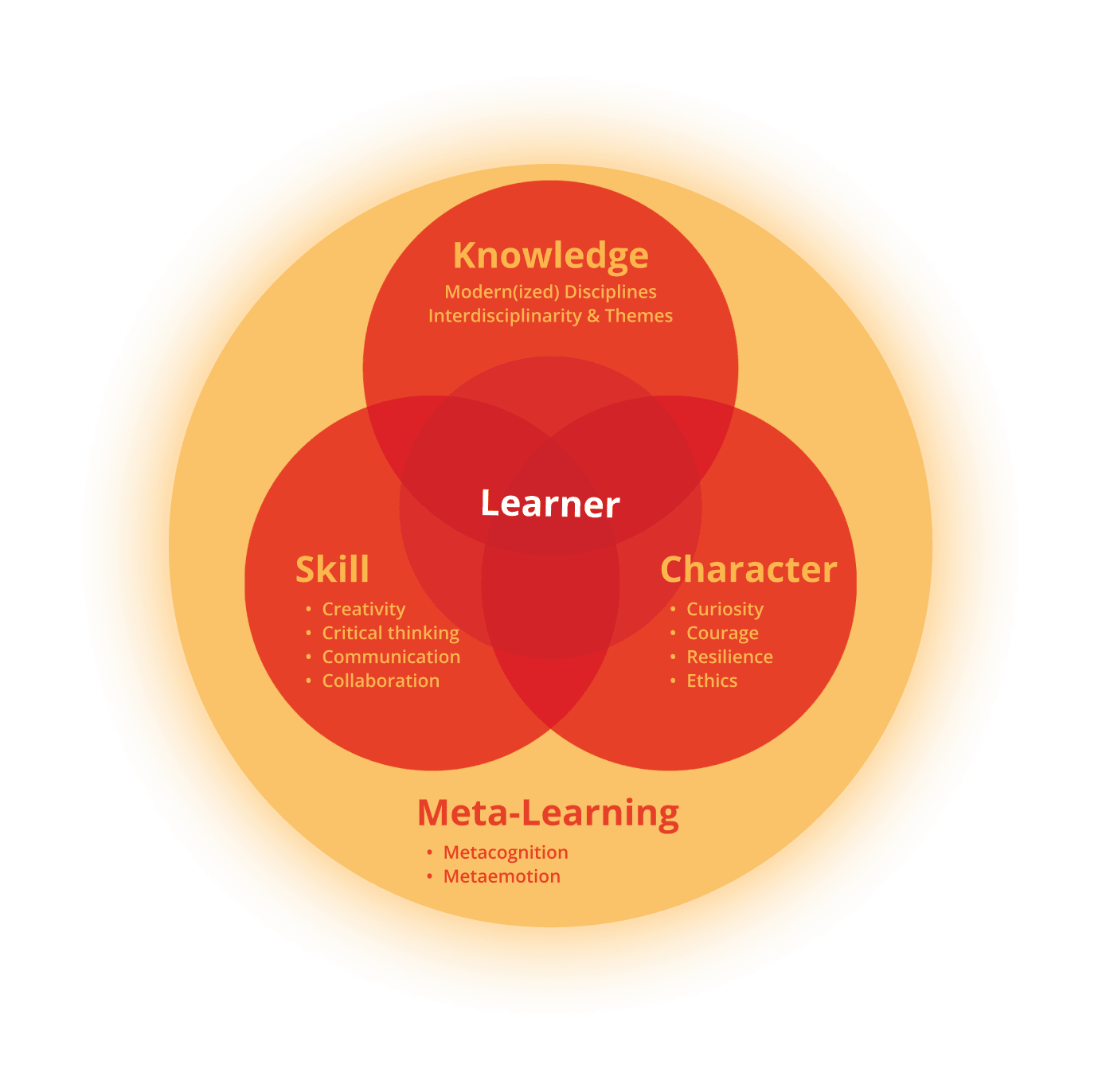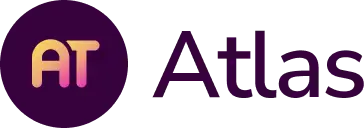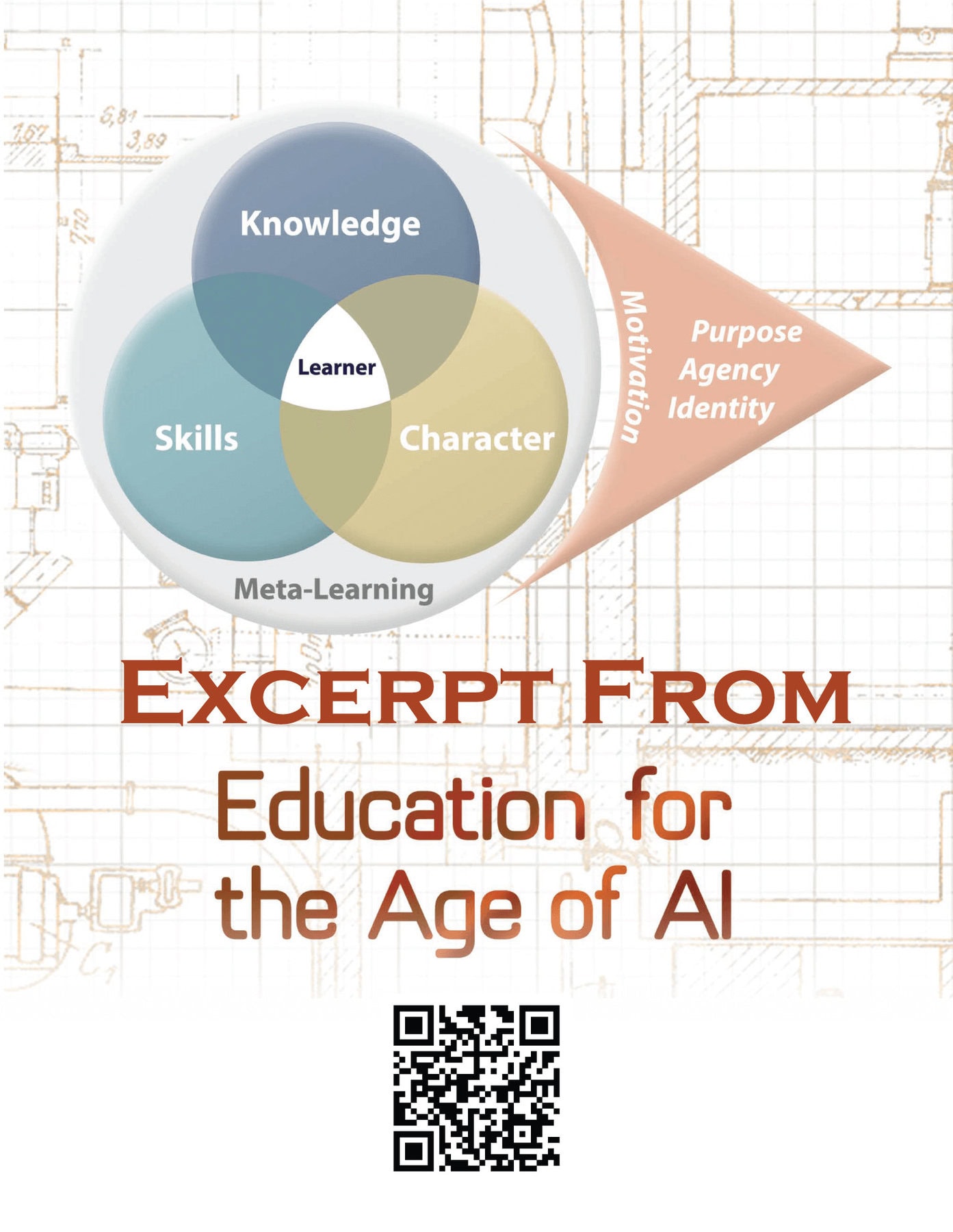Written by Charles Fadel
This blog is a modified extract for Faria Education, from CCR’s recent book: Education for the Age of AI. It gives a realistic overview of AI and its impact on education.
Why Wider? For Versatility
The world around us is changing in profound ways, and education must adapt to it. In an age of growing uncertainty, a wise strategy would be to hedge against disruptions by embracing versatility. A K-12 education today must equip the learners with the abilities to tackle life challenges, ranging from social and political issues (global warming, pollution, inequities, etc.) to technology’s disruption (Social Networks, and now particularly Artificial Intelligence). As such, Education is NOT Training;1 Education is broad, and life-related at large, while Training is narrow and job-related (and starts partially in high school). Of course, Education and training are both needed eventually, but must not be conflated as they have different goals (psychosocial-focused for Education, economic-focused for Training).
The future not being knowable, cultivation of versatility is a wise and appropriate strategy – think of it as a “hedge against all eventualities.” Using a Swiss army knife analogy, it is best to equip learners with a broad set of tools that can be sharpened as the circumstances require - poet, physician, painter, and physicist.
[swiss army knife]
How Wiser? By redesigning the What and the How
Wisdom is more than ever the goal of an education, as justified in Chapter Three. But to get there, it is necessary to redesign both standards/curricula (the What) and Pedagogy (the How, which is not treated in this short blog), as there are significant gaps between emerging needs compared to the current practices.
The What
What schools teach is abdicated to jurisdictional powers, which resist modernization due to inertia, and fear of change. Education has not yet fully adapted to the Information Age: for example, though called “STEM,” only “St_M” is taught in K-12 - very little Technology, and no Engineering. Now the Internet Age, 25 years later, which David Houle2 called the Shift Age, requires adapting rapidly to changing information and dealing effectively with a diversity of languages, cultures, and lifestyles. And with the AI age, the accumulated deficit of the past two ages comes back even more forcefully, augmented by a new set of challenges, reviewed herein.
As a result of this inertia, some will argue, perhaps to temper their cognitive dissonance, that the What does not matter “as long as you learn”. CCR profoundly disagrees: why focus the teaching on old content, if better options are available? For example, why waste time learning trigonometric functions that matter to very few, and have been largely automated, rather than data science, which is useful across many disciplines and is in hot demand?
All Four Dimensions Matter
As a summary, Harvard’s Chris Dede summarizes the situation well:3 “The current curriculum and high-stakes tests often prioritize fostering skills at which AI excels, such as reckoning skills involving calculative prediction and formulaic decision-making. However, AI cannot easily replicate human judgment, which is a deliberative thought process that is flexible and contextual based on experiential knowledge, ethics, values, relationships, and culture.”
As described in our 2015 book Four-Dimensional Education, and more relevant than ever, this means paying attention to all four dimensions of Education: Knowledge, Skills, Character, and Meta-Learning.4 The “4D” Model remains robust (with clarifying caveats that are explained in our book)
Knowledge
- Declarative knowledge is more challenged than ever by LLMs, which is an amplification of historical trends (scripts5 , books, Internet, search engines). As explained earlier, it does not mean that humans do not need base knowledge, it means they need to be a lot more discriminant about what is essential and relevant.
Also, and counterintuitively, there is a need for a broader set of declarative knowledge, to respond to the need for versatility. David Epstein, author of “Range,”6 contrasts “kind” and “wicked” learning environments, explaining that while structured, predictable “kind” environments can favor early specialization, real-world “wicked” environments often reward a wide range of experiences. He also stresses that a sampling period, where one explores various interests before settling on one, can lead to more career satisfaction and success. Epstein argues against early specialization in education, stating it can limit children’s ability to explore their potential and adapt to new situations, and investigates “match quality” - the fit between one’s interests, abilities, and their career, and how a broad range of experiences can enhance it. However, it is crucial to state an AND mindset at this stage: Per IBM Research’s T-shaped model,7 it is perfectly possible to build depth AND breadth, not one or the other - Expertise AND Transfer. This is CCR’s position, as the subsequent chapters will explore.
- LLMs increase the pressure toward teaching more conceptual knowledge (core concepts) and procedural knowledge (projects). Success at medical, legal, and other tests highlights the significant extent to which these tests are based on memorization of declarative knowledge (to be fair, coupled with some deductive capacities).
Competencies
- Skills: Are both challenged and augmented by AI.
- Character: Some remain significantly Human (for instance, Ethics), and must be leant on, while others are helped and pushed (for instance, Curiosity).
- Meta-Learning: Learning how to Learn is more critical than ever, as are Metacognition and Metaemotion.

In addition to the goals of a modern education described by the Venn diagram above, there is also a growing need to personalize Education (see Chapter Seven). This personalization comprises four drivers: Motivation, Identity, Agency, and Purpose - of which motivation and purpose will remain quintessentially human:

1 With a respectful nod to former MIT Professor Woodie Flowers, R.I.P.
2 Houle, D. (2008). Entering the shift age: The end of the information age and the new era of transformation. Sourcebooks.
3 Cao, L. & Dede, C. (2021). Navigating a world of generative AI: Suggestions for educators. Harvard Graduate School of Education: Next Level Lab. https://bpb-us-e1.wpmucdn.com/websites.harvard.edu/dist/a/108/files/2023/08/Cao_Dede_final_8.4.23.pdf
4 CCR Framework Rev. 1.2: https://curriculumredesign.org/framework/
5 Bemoaned by Socrates: “Your invention will enable them to hear many things without being properly taught, and they will imagine that they have come to know much while for the most part they will know nothing. And they will be difficult to get along with since they will merely appear to be wise instead of really being so.” (Plato. [1925]. Plato in twelve volumes, vol. 9 Translated by Harold N. Fowler. William Heinemann Ltd.)
6 “Range: Why Generalists Triumph in a Specialized World” (2019) Riverhead Books Epstein, D. (2019). Range: Why generalists triumph in a specialized world. Riverhead Books.
7 Demirkan, H. & Clinton Spohrer, J. (2018). Cultivating T-shaped professionals in the era of digital transformation. IBM Research. https://research.ibm.com/publications/cultivating-t-shaped-professionals-in-the-era-of-digital-transformation


